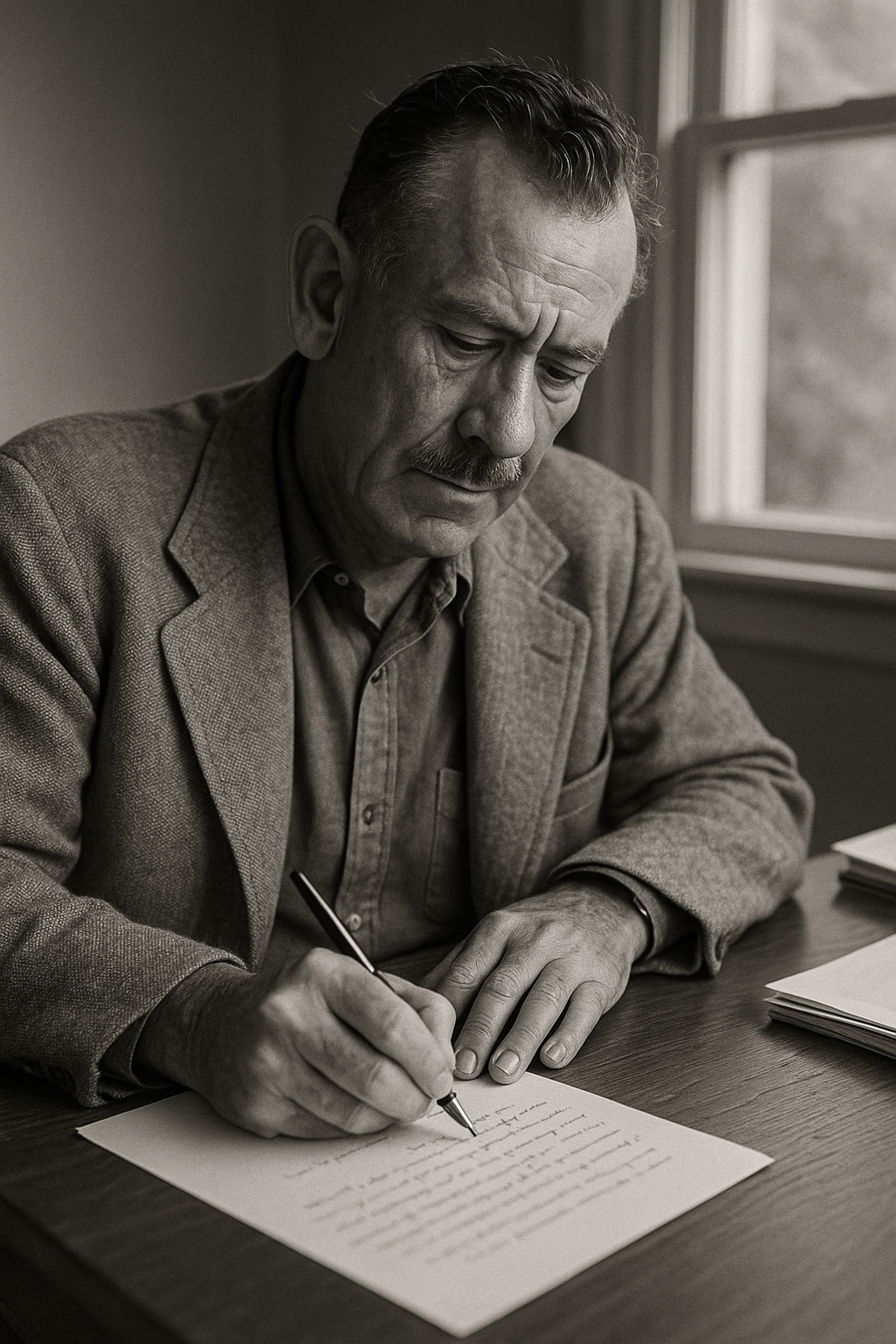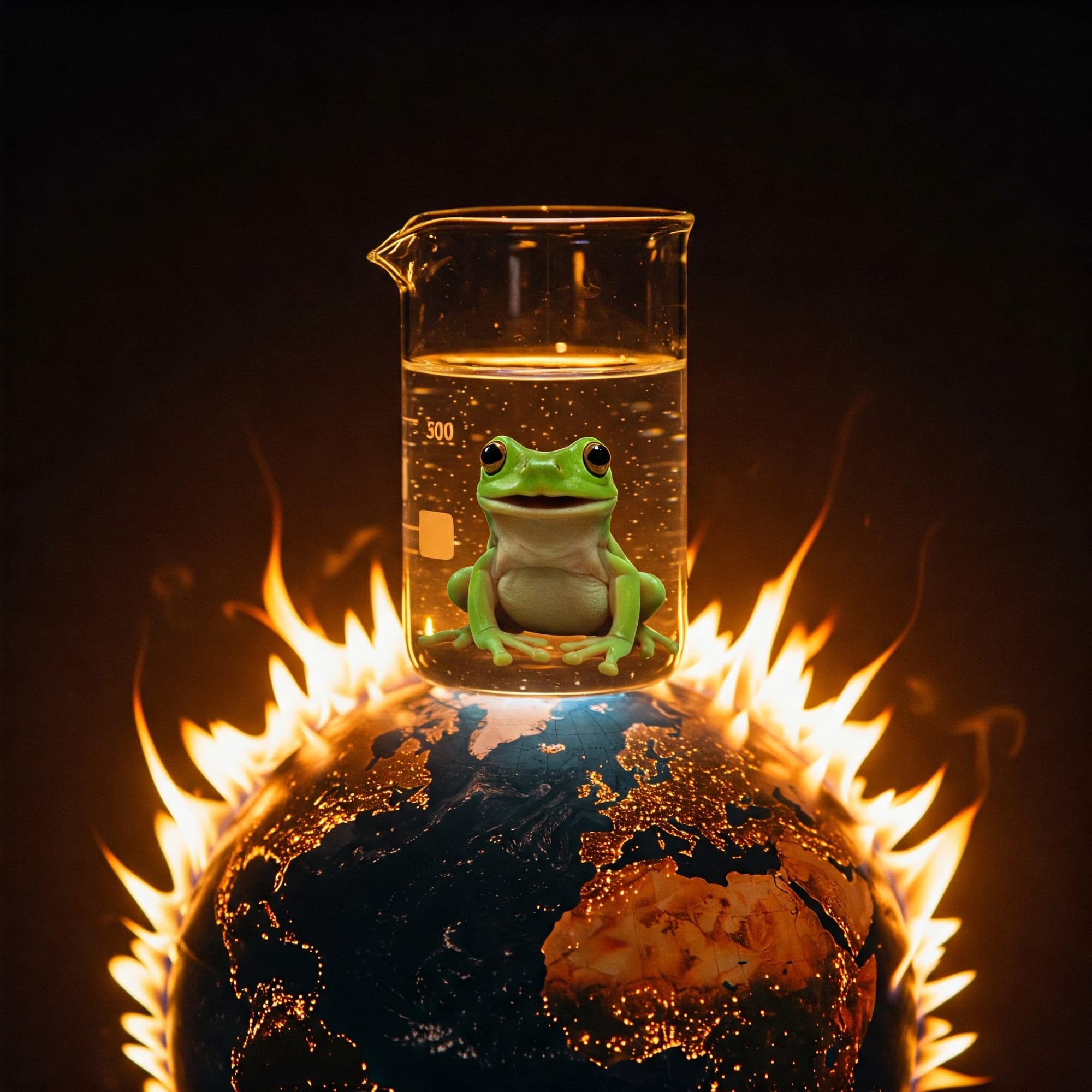Steinbeck
No PrumpTutin today other than to say Rupert reports trump is in the Epstein files.
John Steinbeck: California’s Patron Saint of Lettuce-Based Suffering

Let’s talk about John Steinbeck — the man, the myth, the dude who made California’s dust storms more famous than its beaches. If Hemingway was out wrestling marlins and drinking daiquiris in Cuba, Steinbeck was in a lettuce field muttering, “These damn vegetables are a metaphor.”
Born in Salinas, where we're staying, in 1902, Steinbeck arrived in this world surrounded by cabbage and judgment. Salinas was—and still is—a place where your options are agriculture or leaving. He stayed, unfortunately for Salinas.

He “attended” Stanford for six years, which is a poetic way of saying he never graduated and spent most of his time avoiding lectures and actual pants. He dropped out to become a writer, which is like quitting med school to become a pirate — romantic until you realize you’re broke and your friends are all crusty alcoholics quoting Thoreau.
Then came the wander years. He worked as a manual laborer, caretaker, tour guide, and probably part-time wizard. His official research method was: live with the poor, listen to the poor, get depressed, and turn it into a bestseller.
His big break? Writing Tortilla Flat, a book about a group of lovable drunks in Monterey, which made readers laugh and made Monterey locals say, “Hey, wait a damn minute.”

Soon after came Of Mice and Men, which taught middle schoolers everywhere that life is suffering, and hugging rabbits is a death sentence. Then The Grapes of Wrath, which is basically a 400-page Yelp review of the Great Depression: “One star. Too much dust. No jobs. Family died.”
Of course, people hated it. Especially rich people. Growers in California burned his books. Critics called him a communist. The FBI opened a file. And Steinbeck, being a real one, took all that rage and fed it directly into East of Eden, a story so dramatic it made the Bible look like a pamphlet for an Airbnb.
He also had a bestie, Ed Ricketts — marine biologist, philosopher, drinking buddy, and general ocean nerd. They took a road trip to Mexico to study sea creatures and probably invented bro-philosophy long before Joe Rogan. The trip became The Log from the Sea of Cortez, a book that proves if you get drunk enough near tidepools, it counts as literature.
Later in life, Steinbeck made the ultimate California move: he left. Moved to New York. Started reporting on wars. Wrote some weird stuff. Grew disillusioned. Basically, he became your uncle who moved to Florida and now yells at the History Channel.
But California was always his ghost. Not the fancy Napa Valley influencer version — the dusty, working-class, heartbreaking, actual California. The one with busted boots and broken dreams and that one guy in a bar who says, “You ever read Cannery Row? That’s about my cousin Gary.”
So next time you drive past a field of artichokes or see a crying man holding a dead mouse (emotionally or literally), pour one out for Johnny Steinbeck — patron saint of sad farmworkers, failed dreams, and really judgmental vegetables.
And remember: in California, everything is beautiful until you look too closely. Then it’s a Steinbeck novel.
